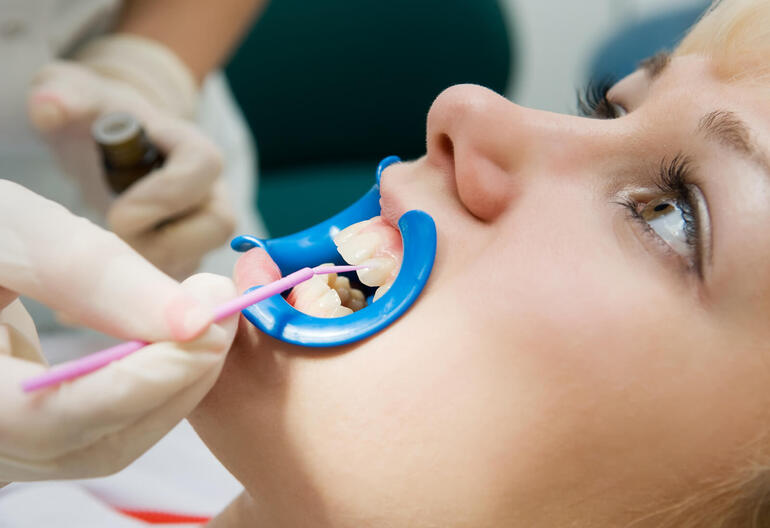

The Significance of Fluoride in Dental Health: Examining Facts and Benefits
Fluoride plays an important role in oral health. It has been regarded as a major factor in preventing cavities and promoting strong, healthy teeth for decades. But what exactly is fluoride, and why is it essential for dental health? This blog will explore the facts and benefits of fluoride, shedding light on its significance and how it contributes to maintaining a healthy smile.
What is Fluoride?
The primary reason fluoride is so important for dental health is its ability to strengthen the enamel—the outer protective layer of your teeth. Strong enamel is less vulnerable to acid attacks from bacteria, which are the main culprits behind cavities and tooth decay. Fluoride is found in toothpaste, mouth rinses, and, in some areas, drinking water. Many dentists also offer fluoride treatments during regular checkups to provide an extra layer of protection against cavities.
How Does Fluoride Benefit Your Teeth?
Fluoride offers numerous benefits that directly impact dental health. Here are some of the key ways fluoride keeps your teeth healthy:
1. Prevention of Tooth Decay
Fluoride's most well-known benefit is its ability to prevent tooth decay. When you consume food and drinks, especially those high in sugar and carbohydrates, the bacteria in your mouth produce acids that attack the enamel. Over time, this acid can weaken the enamel and lead to cavities. Fluoride helps by remineralizing the enamel, reversing the early stages of tooth decay, and making the teeth more resistant to future acid attacks. This is particularly important for children whose developing teeth are more vulnerable to decay.
2. Strengthening Tooth Enamel
Tooth enamel is the hardest substance in the human body, but it can still weaken due to poor dietary habits and improper dental care. Fluoride strengthens tooth enamel, making it less susceptible to erosion from acidic foods and drinks. This is essential for both children and adults, as it helps maintain the integrity of the teeth and reduces the risk of cavities and decay.
3. Helping Rebuild Weakened Enamel
Even if the mouth acid attacks have weakened your enamel, fluoride can help rebuild it. Fluoride encourages the reabsorption of minerals like calcium and phosphate into the enamel, repairing minor damage and reversing the effects of early tooth decay. This process, known as remineralization, helps restore the strength of your teeth and prevents the development of deeper cavities.
4. Fighting Harmful Bacteria
Another significant benefit of fluoride is its ability to inhibit the growth of harmful bacteria in the mouth. Plaque, a sticky film of bacteria that forms on teeth, can lead to tooth decay and gum disease if not regularly removed. Fluoride reduces the ability of bacteria to produce acid, lowering the risk of tooth decay and other oral health problems.
The Role of Fluoride for Children and Adults
Fluoride plays a key role in both children's and adults' dental health. For children, fluoride is crucial to developing strong, healthy teeth. From the moment their teeth start to emerge, fluoride helps protect their enamel and prevent cavities. Many parents choose to use fluoride toothpaste for their children to help reduce the risk of decay early on.
For adults, fluoride remains just as important. As we age, our teeth become more susceptible to decay, especially if we consume a diet high in sugar or have certain health conditions. Fluoride treatments help maintain strong enamel and prevent future dental problems, regardless of age.
How to Ensure You're Getting Enough Fluoride
Incorporating fluoride into your daily dental care routine is simple and effective. Here are a few ways to ensure you're getting the right amount of fluoride:
Use Fluoride Toothpaste: Brushing your teeth twice a day with fluoride toothpaste is one of the most effective ways to protect your teeth. Make sure the toothpaste you use is approved by dental associations and contains the right amount of fluoride.
Drink Fluoridated Water: In many areas, tap water is fluoridated to help reduce tooth decay in the population. If you're unsure whether your local water supply contains fluoride, check with your local water authority.
Regular Fluoride Treatments at the Dentist: For added protection, many dentists recommend professional fluoride treatments during regular checkups. These treatments are quick, painless, and provide long-lasting benefits.
In summary, fluoride is a powerful tool for maintaining dental health and preventing tooth decay. Its ability to strengthen enamel, prevent cavities, and reverse early signs of decay makes it a cornerstone of modern dental care. By incorporating fluoride into your daily dental routine and seeking regular care from your dentist, you can ensure that your teeth remain strong, healthy, and cavity-free for years.
If you want help and advice on protecting your teeth with the right amount of fluoride, then schedule a consultation with Infinite Smile, the best dentist in Kolhapur.

